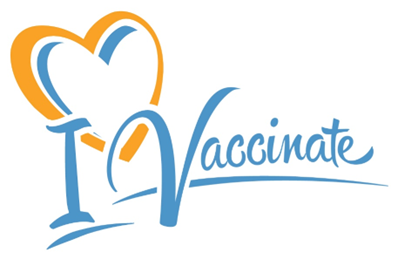Center for Nicotine and Tobacco Research (CeNTR)
About
The Center for Nicotine and Tobacco Research is led by Melissa A. Little, PhD, MPH, its inaugural director. The Center aims to reduce tobacco-related disparities through the development and dissemination of sustainable community-based tobacco prevention and cessation interventions. Specifically, this program focuses on promoting tobacco prevention and cessation, substance abuse prevention and weight reduction among rural populations, youth, low income and active-duty military populations. Current research also focuses on reducing cancer health disparities in Appalachia through interventions to promote vaccinations and cancer screenings. The Center conducts community-engaged research projects in partnership with community-based organizations, such as community pharmacies, schools, Federally Qualified Health Centers, and Virginia Department of Health districts, as well as the U.S. military.
Key team members:
Melissa A. Little, PhD, MPH, Associate Professor, Department of Public Health Sciences
Leslie Gladney, MS, CCRC, Research Specialist Senior, Department of Public Health Sciences
Abigail Wester, MPH, Research Specialist Intermediate, Department of Public Health Sciences
Dylan Allanson, MPH, RD, Research Specialist Intermediate, Department of Public Health Sciences
Ashley Babcock, MPH, Research Specialist Intermediate, Department of Public Health Sciences
Ella Jakum, MPH, Research Specialist Intermediate, Department of Public Health Sciences
Primary areas of focus:
- Tobacco prevention among youth and young adults
- Tobacco cessation among youth, young adults, and adults
- Reducing tobacco-related health disparities
- Translating evidence-based interventions into communities
- Lung cancer screening and early detection
- Reducing rural health disparities
Key funded research projects:

QuitAid: R01 funded through the National Cancer Institute to use a pragmatic approach, guided by the Reach, Effectiveness, Adoption, Implementation, and Maintenance (RE-AIM) framework, to identify the essential components of an effective smoking cessation program that can easily integrate within community pharmacies in underserved rural areas (R01 CA267963, PI Little).
Built Environment: R01 through the National Institute on Drug Abuse to examine behavioral and environmental influences on tobacco initiation and re-initiation among Air Force Technical Trainees following a period of forced abstinence (R01 DA043468, PI Little).
Youth Brief Tobacco Intervention: A large grant funded through the Virginia Foundation for Healthy Youth to develop and test a school-based intervention to reduce tobacco and nicotine use among high school students in Virginia (8521389, PI Little).
QuitAid FQHC: A pilot grant from the Cancer Control and Population Health (CPH) program at the University of Virginia Cancer Center to determine the feasibility of a pharmacist-delivered medication therapy management (MTM) approach to smoking cessation within Federally Qualified Health Centers to reduce tobacco-related disparities among low-income smokers (PI Little).

I Vaccinate: A large multi-site P01 project funded by the National Cancer Institute, aimed to improve the uptake of cervical cancer prevention services and smoking cessation in Appalachia through a clinic-based integrated prevention program. Dr. Little is the state lead on a project to increase Human Papillomavirus (HPV) vaccination among adolescents within Federally Qualified Health Centers (P01 CA229143, Site PI Anderson).
Research Collaborations:
Dr. Little is the Co-Lead of the Tobacco Action Group within the Cancer Center without Walls at the University of Virginia Cancer Center. This coalition brings together representatives from local health departments, community hospitals and cancer centers, federally qualified health centers, universities, and community-based organizations to reduce cancer disparities throughout Southwest Virginia.
Dr. Little is also involved in a large P01, Improving Uptake of Cervical Cancer Prevention Services in Appalachia, which brings together researchers from the University of Virginia, Ohio State University, University of West Virginia, and the University of Kentucky.
Dr. Little is the Co-Lead of a Public Health Partnership between the Department of Public Health at Fort Liberty (formerly Fort Bragg), the Cumberland County Department of Public Health, the North Carolina Comprehensive Cancer Care Center, and the University of Virginia Comprehensive Cancer Center. This partnership works to reduce tobacco use and food insecurity for service members and their families stationed at Fort Liberty.
Finally, Dr. Little leads a collaboration with colleagues at the Maria Sklodowska-Curie National Research Institute of Oncology in Poland. The team is currently working to translate Dr. Little’s pharmacy delivered smoking cessation research to community pharmacies throughout Poland.
Selected publications:
- Klesges, R.C., Talcott G.W., Little, M.A., Mallawaarachchi, I.V., Wang, QW, Aycock, C.A., Patience, M.A., Halbert, J.P., Wiseman, K.P., Ebbert, J.O. (2023). Reengagement for long-term smoking-cessation in military personnel, retirees, family members (TRICARE): A randomized trial. Nicotine & Tobacco Research, https://doi.org/10.1093/ntr/ntad085
- Wiseman, K.P., Aycock, C.A., Mallawaarachchi, I., Wang, X.-Q., Cassidy, D.G., Patience, M.A., Little, M.A., Talcott, G.W., Klesges, R.C. (2023). Predictors of Re-Engagement after Relapse in a Tobacco Quit Line Intervention: Secondary Analysis from a Randomized Clinical Trial. J. Environ. Res. Public Health, 20, 1229. https://doi.org/10.3390/ijerph20021229
- Fahey M.C., Talcott W.G., Robinson L.A., Mallawaarachchi I., Klesges R.C., Little M.A. (2022). Predictors of Cessation Outcomes Among Older Adult Smokers Enrolled in a Proactive Tobacco Quitline Intervention. Journal of Aging and Health, 34:1144-1155. https://doi.org/10.1177/08982643221097679
- Little, M.A., Bonilla, G., McMurry, T., Pebley, K.,Klesges, R.C., Talcott, G.W. (2021). The Feasibility of Using Self-Generated Identification Codes in Longitudinal Research with Military Personnel. Evaluation & the Health Professions. https://doi.org/10.1177/01632787211031625
- Pebley, K., Krukowski, R.A., Mallawaarachchi, I, Talcott, G.W., Klesges, R.C., Little, M.A. (2021). Dual and Polytobacco Use After a Period of Enforced Tobacco Cessation. Addictive Behaviors,123:107077. https://doi.org/10.1016/j.addbeh.2021.107077
- Fahey, M.C., Talcott, G.W., McMurry, T., Klesges, R.C., Tubman, D., Krukowski, R.A., Little, M.A. (2020). When, how, & where tobacco initiation and relapse occur during U.S. Air Force technical training. Military Medicine, 185(6 May):e609-e615. https://doi.org/10.1093/milmed/usaa016
- Morris, D., Pebley, K., Little, M.A. (2023). Vaping Opioids: Should we be Worried?American Journal of Health Promotion. https://doi.org/10.1177/08901171231193785
- Pebley, K., Krukowski, R.A., Morris, J.D., Little, M.A. (2023). Sexy, Trashy, Cool: Perceptions of Electronic Cigarette Users Across Sociodemographic Groups and E-Cigarette Use. Preventive Medicine Reports. https://doi.org/10.1016%2Fj.pmedr.2023.102250
- Pebley, K., Pilehvari, A., Krukowski, R. A., Morris, J. D., Little, M. A. (2023). Motives of Tobacco Use Among Young Adults in the United States Air Force. American Journal of Health Promotion. https://doi.org/10.1177/08901171231156527
- Little, M.A., Pebley. K., Reid, T., Morris, J.D., Wiseman, K.P. (2022). Rationale, design, and methods for the development of a youth adapted Brief Tobacco Intervention plus automated text messaging for high school students. Contemporary Clinical Trials, 199:106840. https://doi.org/10.1016/j.cct.2022.106840
- Little, M.A., Fahey, M.C., Wang, X-Q., Talcott, G.W., McMurry, T., Klesges, R.C. (2021). Trends in Tobacco Use among Young Adults Presenting for Military Service in the United States Air Force Between 2013-2018. Substance Use & Misuse, 56(3): 370-376. https://doi.org/10.1080/10826084.2020.1868517
- Little, M.A., Wang, X-Q, Fahey, M.C., Wiseman, K.P., Pebley, K., Klesges, R.C., Talcott, G.W. (2021). Efficacy of a Group-Based Brief Tobacco Intervention Among Young Adults in the U.S. Air Force Between 18 and 20 Years of Age. Tobacco Induced Diseases, 19. https://doi.org/10.18332%2Ftid%2F143282
- Little, M.A., Fahey, M.C., Klesges, R.C., McMurry, T., Talcott, G.W. (2020). Evaluating the effects of a brief tobacco intervention in the U.S. Air Force. Nicotine & Tobacco Research, 22(9):1569-1577. https://doi.org/10.1093/ntr/ntaa001
- Little, M.A., Ebbert, J.O., Krukowski, R.A., Kalpinski, R., Patten, C., Boothe, T., Pasker, C., Talcott, G.W., Klesges, R. (2020). Factors Associated with Cigarette Use during Airmen’s First Year of Service in the United States Air Force Military. Military Medicine, 185(1-2):e212-e220. https://doi.org/10.1080/08897077.2019.1577678
- Patten, C.A., Wang, X-Q., Little, M.A., Ebbert, J.O., Talcott, G.W., Hryshko-Mullen, A.S., Klesges, R.C. (2020). Influence of Gender on Initiation of Tobacco and Nicotine Containing Product Use among U.S. Air Force Trainees. Preventive Medicine Reports, 19:101104. https://doi.org/10.1016/j.pmedr.2020.101104
- Pebley, K., Krukowski, R.A., Porter, K., Little, M.A. (2020). Descriptive and Injunctive Norms Related to E-Cigarettes. Military Medicine, 185(11-12): e1919-e1922. https://doi.org/10.1093%2Fmilmed%2Fusaa227
- Little, M.A., Pebley, K., Porter, K., Talcott, G.W., Krukowski, R.A. (2020). ‘I think smoking’s the same, but the toys have change.’ Understanding Facilitators of E-cigarette Use among Air Force Personnel. Journal of Addiction and Prevention, 8(1):7. https://pubmed.ncbi.nlm.nih.gov/33204766
- Pilehvari, A., Wen, Y., Krukowski, R. A., Little, M.A. (2023). Examining Smoking Prevalence Disparities in Virginia Counties by Rurality, Appalachian Status, and Social Vulnerability, 2011-2019. American Journal of Public Health. https://doi.org/10.2105/ajph.2023.307298
- Little, M.A., Porter, K.J., Pebley, K., Wiseman, K.P., Cohn, W., Anderson, R.T., Krukowski, R.A. (2022). Evaluating the Feasibility of Pharmacist Facilitated Tobacco Cessation Interventions in Independent, Community Pharmacies in Rural Appalachia. Journal of the American Pharmacists Association. https://doi.org/10.1016/j.japh.2022.06.015
- Horn, T.L., Pebley, K.N., Krukowski, R.A., Porter, K.J., Little, M.A. (2022). “It depends on where you are and what job you do”: Differences in Tobacco Use Across Career Fields in the United States Air Force. International Journal of Environmental Research and Public Health, 19(4). https://doi.org/10.3390/ijerph19148598
- Pebley, K., Wang, X. Q., Fahey, M. C., Patten, C. A.,Mallawaarachchi, I., Talcott, G. W., Klesges, R. C., Little, M. A. (2022). Examination of tobacco-related messaging and tobacco use over time among U.S. military young adults. Substance Use and Misuse, 1-7. https://doi.org/10.1080/10826084.2022.2151313
- Pebley, K., Krukowski, R. A., Talcott, G. W., & Little, M. A. (2022). Young adults may be engaging in risky behaviors with their e-cigarettes. Military Behavioral Health. https://doi.org/10.1080%2F21635781.2022.2040661
- Kong, A.Y., Golden, S.D., Ribisl, K.M., Krukowski, R.A., Vandergrift, S., Little, M.A. (2021). Cheaper Tobacco Product Prices at U.S. Air Force Bases Compared to Surrounding Community Areas, 2019.Tobacco Control. (along with National Cancer Institute T32CA128582, P30CA225520). https://doi.org/10.1136%2Ftobaccocontrol-2021-056984
- Krukowski, R.A., Porter, K., Boothe, T., Talcott, G.W., Little, M.A. (2021). “Nobody Views It as a Negative Thing to Smoke”: A Qualitative Study of the Relationship Between Military Culture and Tobacco Use.Military Psychology, 33(6):409-416. https://doi.org/10.1080/08995605.2021.1962189
- Porter, K., Krukowski, R.A., Bonilla, G., McKenna, L., Talcott, G.W., Little, M.A. (2021). Using the Socio-Ecological Model to Explore Facilitators and Deterrents to Tobacco Use among Airmen in Technical Training. Military Medicine, 187(10 Sept):e1160-e1168. https://doi.org/10.1093%2Fmilmed%2Fusab075
- Fahey, M.C., Krukowski, R.A., Talcott, G.W., Little, M.A. (2020). JUUL Targets Military Personnel and Veterans. Tobacco Control, 29(e1):e163-e164). https://doi.org/10.1136%2Ftobaccocontrol-2019-055377
